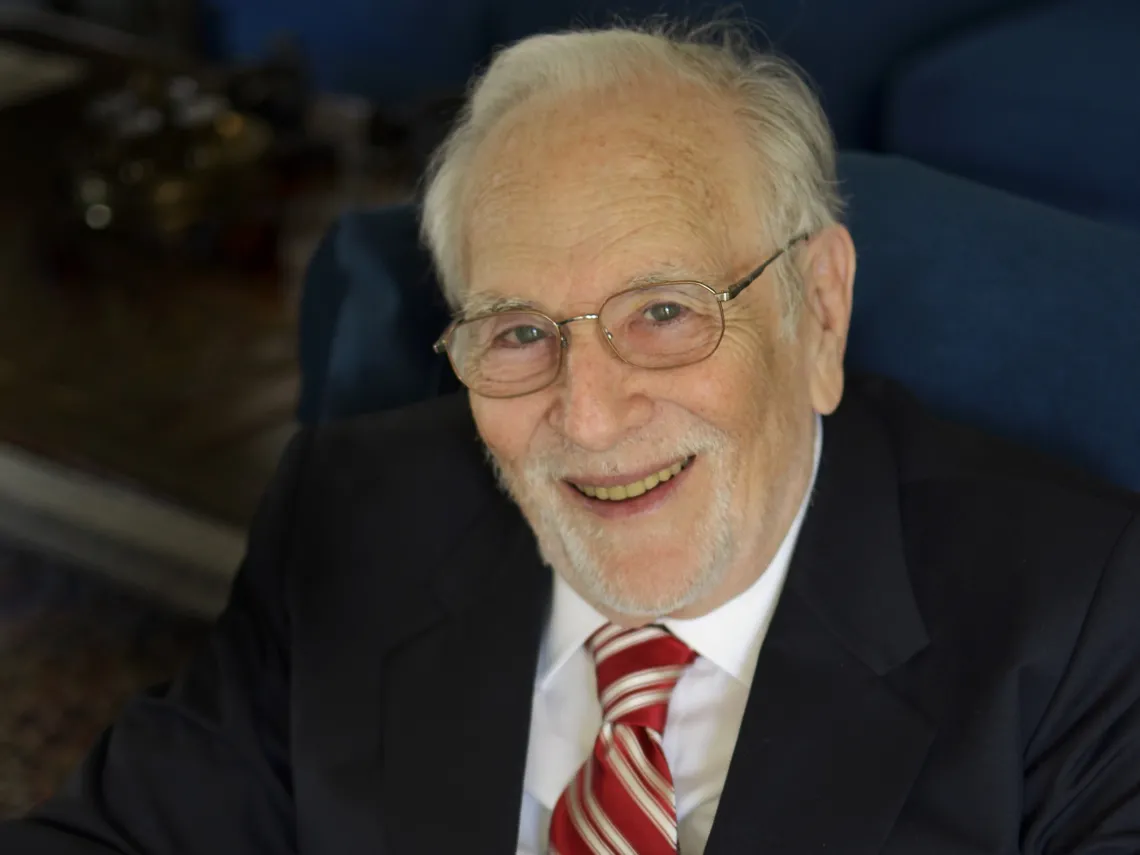University of Arizona Law Professor Boris Kozolchyk Nominated for Nobel Peace Prize for Global Economic Justice Work

The University of Arizona James E. Rogers College of Law congratulates Evo DeConcini Professor of Law Emeritus Boris Kozolchyk on his recent Nobel Peace Prize nomination. Kozolchyk was nominated by the University of Rio de la Plata and the Argentine Comparative Law Association for his work addressing issues of economic justice between countries as well as within each country, advancing societies through economic development.
“Having worked with Boris for 15 years, I have come to fully understand how his impactful work improves the human condition and the tends the landscape of peace as surely as if he were engaged in high-profile activism,” wrote Arizona Law Dean Marc Miller in a letter of support to the Norwegian Nobel Committee.
Kozolchyk is the president and director of the National Law Center for Inter-American Free Trade (NatLaw), a nonprofit research and legal reform institution that he founded in 1992. Recently, NatLaw’s board voted to rename the center in Kozolchyk’s honor, and it now operates as the Kozolchyk National Law Center. Located in Tucson, NatLaw maintains a strong affiliation with the University of Arizona, involving Arizona Law students in the center's many projects.
NatLaw works with developing countries and communities to help small businesses through increased access to credit and acts to encourage investment by creating institutions that protect the rights of all parties. The center also provides law training for legislators, judges, law professors and students, practicing lawyers and international businesses.
Some of Kozolchyk’s contributions include working to establish a Model Inter-American Law of Secured Transactions (MIASTL). Before MIASTL, Honduran law required that the farmer-borrower must be the owner of the land where the collateral crops grew. In contrast, MIASTL, drafted mostly by NatLaw, provides that a lawful possession of the land or of any other collateral by the debtor is all that is required for that asset to qualify as collateral. MIASTL allowed thousands of farmers to access credit at 7.5% interest per year for the first time in their lives.
Kozolchyk and NatLaw have introduced similar reforms like MIASTL within every sector of Latin American, African, and Asian economies.
In Costa Rica, under Kozolchyk’s leadership, NatLaw convinced fiscal authorities to allow expensive fruit juice machines to serve as long-term loan collateral, making the loans to the fruit juice sellers possible for a much longer period. The change improved the lives of thousands of juice vendors. In multiple Latin American countries, the expansion of acceptable loan collateral led to much greater credit access for small and medium-sized businesses.
For many decades Kozolchyk’s work has helped provide ethical and fair business practices around the world, helped advance societies through economic development, and improve the lives of everyday people.
“The link between financial infrastructure and robust civil societies may not be intuitive or obvious, yet it is actually quite direct,” wrote Miller in his letter supporting Kozolchyk’s nomination. “Legal infrastructure that promotes opportunity allows individuals to achieve higher living standards. It affords the people of a nation the chance to fully participate in the growth of their nations.”
